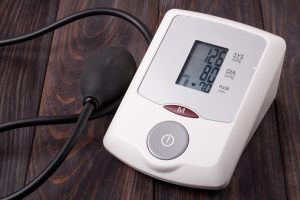 Elevated systolic blood pressure (SBP) rate is rising globally, along with associated deaths, according to research findings. The analysis involving 8.7 million participants found substantial increases in elevated systolic blood pressure between 1990 and 2015.
Elevated systolic blood pressure (SBP) rate is rising globally, along with associated deaths, according to research findings. The analysis involving 8.7 million participants found substantial increases in elevated systolic blood pressure between 1990 and 2015.
Systolic blood pressure of at least 110 mm Hg has been associated with a number of cardiovascular and kidney disease outcomes. The obesity epidemic has been a large contributing factor to the growing systolic blood pressure problem.
Advertisement
The researchers found that systolic blood pressure readings between 110 and 115 mm Hg were associated with over 10 million deaths and over 212 million disability-adjusted life-years (DALYs) in 2015. This was a 1.4-fold increase since 1990. The authors wrote, “These estimates are concerning, given that in 2015, an estimated 3.5 billion individuals had an SBP level of at least 110 to 115 mm Hg.”
“Both the projected number and prevalence rate of SBP of at least 110 to 115 mm Hg are likely to continue to increase globally. These findings support increased efforts to control the burden of SBP of at least 110 to 115 mm Hg to reduce disease burden,” the authors concluded.
Reasons for high systolic blood pressure
Elevated systolic blood pressure can be a temporary or chronic condition and can occur for a variety of reasons. Reasons for high systolic blood pressure include:
Isolated systolic hypertension: Nearly 65 percent of seniors over the age of 60 have isolated systolic hypertension. Systolic blood pressure can rise, while diastolic blood pressure remains constant or decreases as we age.
Essential hypertension: Essential hypertension is the cause of elevated systolic blood pressure in about 95 percent of patients. In essential hypertension, there is no known cause for the elevated systolic blood pressure, but factors may include age, smoking, obesity, high sodium diet, and a sedentary lifestyle.
Underlying medical conditions: In many cases, an underlying medical condition is the cause of elevated systolic blood pressure. These conditions may include endocrine disorders like thyroid disease, kidney problems, and sleep apnea.
Advertisement
Medications and substance abuse: A number of over-the-counter and prescription medications can contribute to elevated systolic blood pressure. Additionally, smoking and alcohol consumption can raise systolic blood pressure, too.
Uncovering the cause of your elevated systolic blood pressure can help you better treat it and thus help lower your risk of blood pressure-related complications.
Related: What is systolic and diastolic blood pressure?
